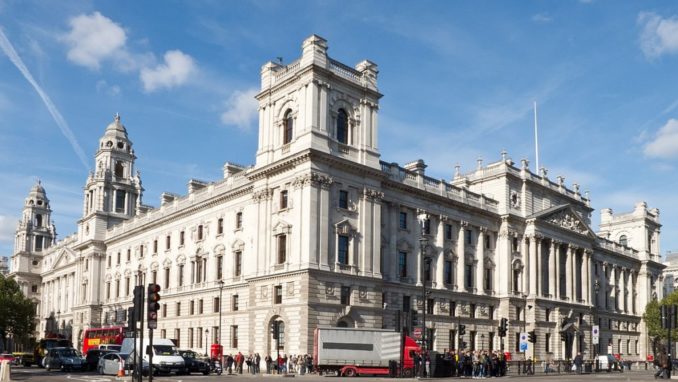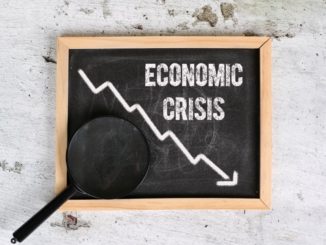
While speculation is rife about what the post-Covid economy will look like, we must remember that economic fundamentals are not susceptible to alteration. They may adapt to changed circumstances, but no external modifications in society can affect the laws and principles themselves – for these are immutable and always apply. No matter how seemingly profound, these societal shifts should be seen as interim challenges rather than as game-changers.
Working practices
Take the probability that a large proportion of employees, forced under lockdown rules to adapt to working at home, and discovering that life with Zoom is a tolerable alternative to congested trains and cramped offices, will wish to continue to do so; and that changes in commuting patterns will have an impact not only on travel costs, but on office and hospitality space utilisation in cities; and, in turn, on the commercial property market. Many of those workers will voluntarily migrate away from city centres to seek more congenial surroundings that may even offer promising job opportunities. Prospects differ between firms and industries, of course, but only time will reveal the full impact of changing work patterns.
But what matters above all is that the driving market forces behind all these changes should be allowed to do what they always do when untrammelled by burdensome regulatory processes – they weed out waste and inefficiency, while allowing inherent business genes to develop successful enterprises. In a free market any well-run, innovative business is likely to be inherently viable, and thus will in all probability recover; those that have been mothballed by the government’s lockdown and then try to recreate the chimera of pre-Covid conditions may well fall by the wayside.
Crisis funding
The Chancellor has been resourceful in applying generous funding to furlough schemes, stamp duty relief, ‘eat-out-to-help-out’, raising the minimum wage, boosting the size and scope of Universal Credit – and myriad other relief initiatives. But what happens after the lockdowns cease, and the nation enters a period of convalescence and recovery from its trauma? The Chancellor must resist the self-interested pleas of civil officials striving to second-guess the optimum recipe for a resumption of normality. But it’s vital that business people are permitted to plan their own exit strategy.
Sadly, the wholesale loss of civil freedoms is the contagious handmaiden to all the gratefully seized state handouts. It is astonishing that so many freedoms previously considered rights are now shown to be easily revokable privileges – such as our freedom of movement, now subject to travel bans, quarantine restrictions and penal consequences for any peremptory breach. And then there is the freedom to employ migratory labour, crucial in all industries subject to seasonal demand, with businesses in rural areas and food chains most afflicted by the host of counterproductive restrictions.
Coping with the economic cost of the pandemic
We should not simply assume that civil freedoms will be blithely restored after the lockdowns, and that the economy will return to our memories of normality. No. There is always a price for state-sponsored economic salvation, and pay no attention to the reason-defying utterances of “modern monetary theorists” who would have us believe that multi-billion pound debt spirals are self-cancelling and therefore leave no trace. The massive wealth transfers that they engineer certainly leave a trace.
Millions of people have been receiving, in one form or another, gratuitous, life-saving subventions for nigh on a year, despite not generating any wealth. That has created a very real hole in our nation’s reserves, and even the most ardent Keynesian spendthrift cannot “quantitatively ease” a way to plug it. If printing and spending ad infinitum was the answer,, holders of the old Ostmark would have retired rich, the Roman Empire would still be with us and Argentina, Zimbabwe and Venezuela would now be case studies in the art of financial management rather than basket cases.
If you think about it, here’s the logical sequence:
- Money-printing (QE) is resorted to by governments that are in debt because their spending commitments exceed their revenues
- That indebtedness must somehow be paid for
- The governments suppress interest rates artificially to reduce the cost of financing the debt that their QE has created
- Suppressed interest rates make properties and other debt-financed acquisitions more affordable
- A 2008-style financial crisis is now about to recur.
Endless money-printing to repay infinite debt – some policy! Fine, if you want your currency to become a fiction.
A better way?
So, if it’s true that the only tool known to central banks – money printing – is not a sensible option (which doesn’t mean they won’t still do it!), how can that gap be plugged? Raise taxes? Cut government spending? Renege on infrastructure promises? Well, maybe. But the only sure-footed, intelligent, reliable, historically tested policy in today’s circumstances runs against the grain of every political busybody: focus on growth – for that alone will extinguish the lockdown-generated fiscal shortfall. I realise that sounds far too obvious, even trite. After all, everyone knows that growth is a worthy pursuit, a “good thing”. (Some pro-climate zealots are “anti-growth”, but that’s because they oppose anything that sounds remotely capitalist.)
But what stymies most politicians, civil servants, Treasury officials and the economists they currently favour, is (a) their delusion that they’re already pursuing growth; and (b) the fact that any genuine focus on growth is a study in resisting the temptation to do. (Remember the wise words of Alice’s White Rabbit: “Don’t just do something, stand there!”!
Protectionism again – small-minded but prevalent
But there is method in the madness of the rabbit’s sage instruction. What does this “creative inaction” require? For starters, we need (a) lower, flatter and simpler taxes; (b) unilateral free trade, bearing in mind that people and businesses, not governments or nations, trade; (c) sound money (without which foreign trade will lack a dependable settlement medium); and, (d) a regulatory cull. Right now protectionist zeal stalks decision-making at every level. The EU’s calamitous vaccine behaviour is an example of what could become the norm in a new trade war of competitive protectionism and supply chain disruption that would threaten the very fabric of free trade and stifle its virtues.
The state’s role
Ronald Reagan famously quipped that the nine most terrifying words in the English language are: “I’m from the government and I’m here to help”. Short-term government help was justified when the initial vaccine required funding, as subsequent events have amply demonstrated. But it should have been left there. Public funds were hardly needed to encourage the pharmaceutical giants to make a supremely profitable entry into the vaccine market.
What’s so worrying about the PM’s stated vision of encouraging the “state to lead in infrastructure, education and technology” is the eminently counterproductive philosophy behind it. Bureaucrats are not famous for picking winners, precisely because they lack an understanding of the markets, and have no incentive to spend wisely when it’s not their money. The history of state involvement in innovative enterprise is a history of bailing out one commercial failure after another. When the National Audit Office (NAO) recently examined ten business support schemes they found that the lavishing of taxpayers’ money was neither monitored nor evaluated, in many cases without so much as citing an objective. Once again, the preferred alternative is to learn to let go.
Engaging publicly-funded quangos in the provision of public services is an alluring trap, but it is based on the ration-book mentality: fair and equal distribution of what’s available will at least ensure that no one starves. But by what perverse imagery do they conjure up such a rigidly static notion of supply? It was Margaret Thatcher who nurtured the principle that you don’t have to cut the existing pie into equally small portions if you allow the economics of the market to enlarge the pie.
The last thing we need in a post-Covid world is an economic model based on the state’s emergency rations.
© Emile Woolf February 2021 (website)
The Goodnight Vienna Audio file
Audio Player



